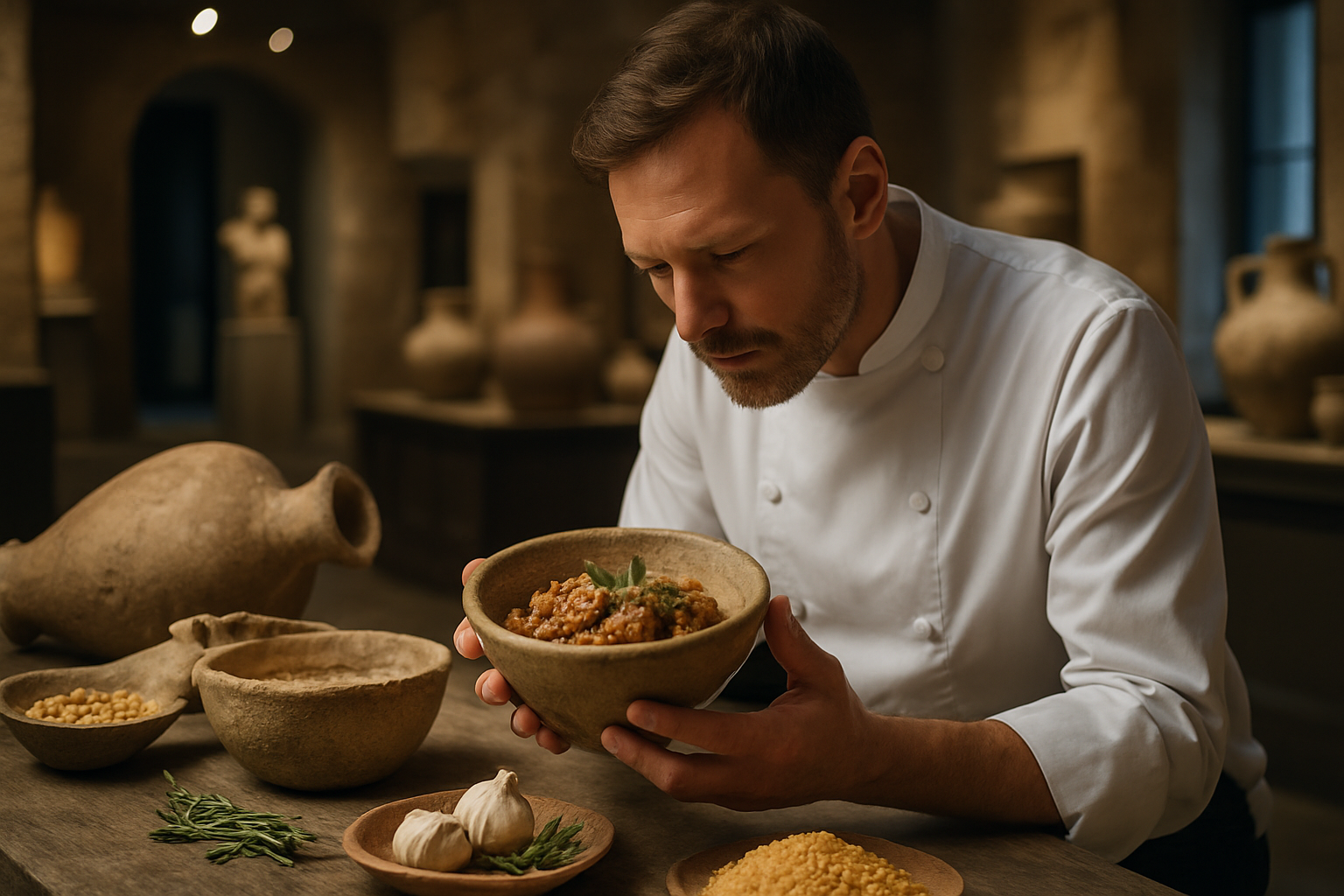Culinary Time Travel: Exploring Ancient Food Traditions in Modern Destinations
Embark on a gastronomic journey through time as we delve into the fascinating world of ancient food traditions thriving in contemporary travel destinations. This unique blend of culinary archaeology and modern tourism offers travelers a chance to taste history, connecting with cultures through their most enduring legacy: food. From recreated Roman feasts to Indigenous cooking methods preserved for millennia, discover how ancient flavors are captivating the palates of 21st-century globetrotters.

Unearthing Culinary Treasures
Archaeologists and food historians play a crucial role in this culinary time travel trend. By studying ancient texts, analyzing food remains from archaeological sites, and decoding recipes carved into stone tablets, these experts are bringing long-lost flavors back to life. Their findings not only shed light on the dietary habits of our ancestors but also provide valuable insights into their daily lives, beliefs, and societal structures. This interdisciplinary approach has led to the recreation of meals enjoyed by pharaohs, Roman emperors, and medieval kings, allowing modern travelers to literally taste history.
Ancient Eats in Modern Metropolises
Many cities with rich historical backgrounds are capitalizing on their culinary heritage to offer unique experiences for food-loving travelers. In Rome, visitors can partake in lavish banquets inspired by ancient Roman recipes, complete with period-accurate ingredients and dining customs. Athens boasts restaurants serving dishes that would have been familiar to Socrates and Plato, while in Mexico City, pre-Columbian ingredients and cooking techniques are experiencing a revival in high-end eateries and street food alike.
Indigenous Wisdom on the Plate
Indigenous food traditions, some of which have remained largely unchanged for thousands of years, are gaining recognition in the culinary world. Travelers to Australia can experience bush tucker tours, learning about native plants and animals that have sustained Aboriginal peoples for over 60,000 years. In Peru, ancient Incan superfoods like quinoa and maca are being rediscovered and incorporated into modern cuisine, offering nutritious and delicious options for health-conscious travelers.
The Challenge of Authenticity
While the appeal of ancient food traditions is undeniable, recreating these culinary experiences presents unique challenges. Many ingredients used in ancient times are now extinct or endangered, requiring chefs and food historians to find suitable substitutes. Additionally, modern palates and dietary restrictions may not always align with historical tastes and practices. Successful culinary time travel experiences strike a balance between authenticity and accessibility, educating travelers while still catering to contemporary preferences.
The Impact on Local Communities
The resurgence of interest in ancient food traditions has had a positive impact on many local communities. By preserving and promoting their culinary heritage, these communities are able to maintain their cultural identity while also benefiting economically from tourism. In some cases, the revival of ancient farming and cooking methods has led to more sustainable agricultural practices, contributing to both environmental conservation and food security.
Ancient Flavors for Modern Adventurers
-
Taste Mesopotamian beer brewed using 4,000-year-old recipes in Turkey
-
Forage for edible plants with Maori guides in New Zealand’s forests
-
Experience a Viking feast complete with mead and traditional entertainment in Iceland
-
Learn to prepare Ancient Egyptian bread using traditional clay ovens in Cairo
-
Discover the medicinal properties of Aztec herbs in Mexico’s botanical gardens
As travelers continue to seek deeper, more meaningful connections with the places they visit, culinary time travel offers a unique and flavorful way to bridge the gap between past and present. By engaging with ancient food traditions, we not only satisfy our taste buds but also gain a profound appreciation for the culinary wisdom that has shaped human civilization. Whether you’re a history buff, a food enthusiast, or simply an adventurous eater, exploring ancient cuisines in modern destinations promises a journey that will tantalize your senses and broaden your cultural horizons.





